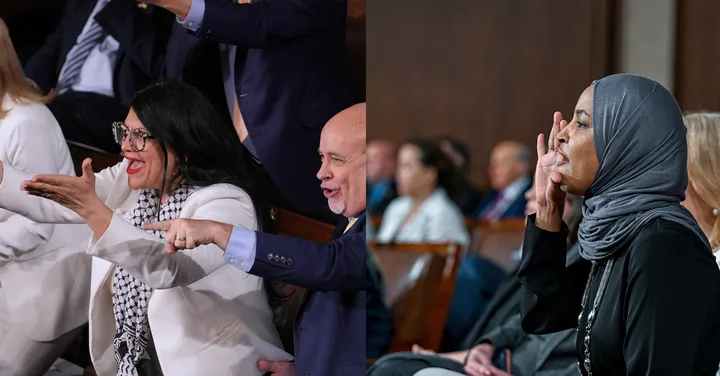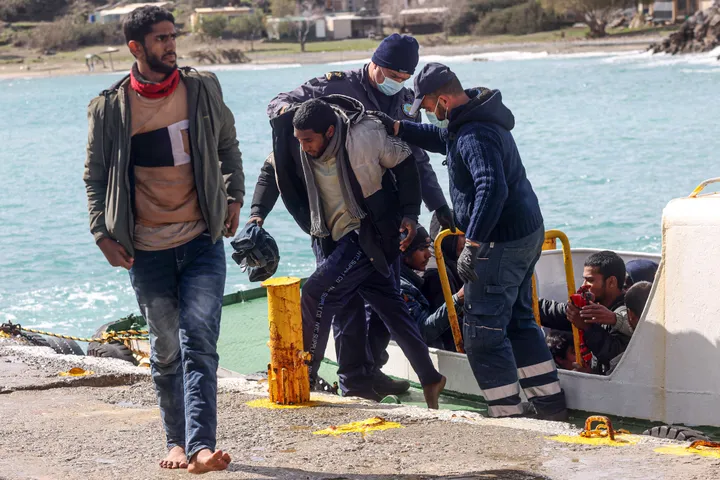Mexico will hold its biggest elections ever on Sunday, June 6. Some 21,000 positions, including state governors, federal deputies, and municipal positions will be up for grabs. However, at least 80 politicians have been murdered so far, and the electoral process has been fraught with corruption.
That corruption has increased with the pandemic, its social cost for ordinary Mexicans is enormous. While the media usually focuses on the economic impact of corruption, the phenomenon is fostering a culture of silence and with pandemic measures combined, it foments disempowerment.
A day after the Mexico City Metro overpass collapse, in which 26 people died, allegedly due to negligence and corruption, I was leaving the building I live in, in Puebla. But something was wrong. The woman who sells clothes in the entranceway was hurriedly packing them away. My neighbour, who sells vegetables in the street out front, was also frantically putting them in boxes.
“What’s going on?” I asked.
“We don’t know,” they replied and ran past me. Out in the street, other street sellers were doing the same. Hundreds of people holding wooden and metal polls had gathered at the nearest intersection. They seemed to be ready to fight.
I asked someone with a wooden stick what they were doing. “Nothing,” he said. I asked again. “I don’t know.” I insisted, and avoiding eye contact with me, he said: “It’s best you don’t ask.”
The area I live in is full of people selling anything from basket tacos to handbags, fresh fish, and more. The pandemic has seen inequality and poverty increase, so street space to sell products in order to survive is in even greater demand. Street sellers pay an amount to a mafia group, which then pays off the police and judges. One mafia group, Fuerza 2000, is known for using violence to control much of the street space, and on that day they were clashing with another group of street sellers. Fuerza 2000’s leader, Federico Lopez, has been arrested various times and then released.
This is why no one wanted to talk about what was happening. The corruption we live with is a black market of power. The money that changes hands can’t be taxed. There are no receipts, and the scale of it is undocumented. Only the highest bidder has access to justice, which is disheartening for the poorer classes. It feels impossible to counter this unseen disaster that thrives on passivity.
Untrustworthy candidates and political silence
So it is no surprise that Sunday’s massive elections have also been wrought with violence and corruption. Almost 95 million voters will be able to cast their vote at 161,550 booths, with one million booth workers in attendance.
In the lead-up to the elections, there have been hundreds of incidents of violence and corruption. Candidates and campaigners have been kidnapped, tortured, beaten up, killed, and threatened. Some 782 acts of such aggression have been registered, and the real number is likely much higher. Many of those who have been attacked either refused to bend to the demands of organized crime, or were assaulted by rivals. Other candidates have been caught allegedly distributing goods to people as a vote-buying strategy.
“Lots of parties sell off the candidate positions,” Luis Soriano, lawyer, human rights activist and head of Citizen’s Voice, explained to me. “So if you have money, you can be a candidate, and if you don’t have money, you can’t. And what happens is, if you spent a million pesos to be a candidate, and then five million pesos on the campaign, then you have three years to earn that back through acts of corruption,” he said.
Another source, a community activist who worked as a councillor in Chignautla, in the mountains of Puebla state, and who asked to remain anonymous, denounced corruption by the candidate there who is likely to win on Sunday.
In detail, he described in detail how Juan Toral Ramos and Arturo Córdova, two former senior city government officials, fought over the use of public funds. He said Córdova would be absent for months and only attend parties, while necessary public works weren’t carried out, documents were falsified, and the budgets for public workers were inflated so the contracted companies would profit more. As a councillor, the source was asked to sign blank pieces of paper, with the excuse that the printer wasn’t working.
At one point, the mayor held a meeting with henchmen and construction company representatives who yelled and attacked councillors and citizens in order to prevent any decisions from being made. Toral, meanwhile, was in the conservative PRI party then but is now running for Morena, a Cardenist political party in Mexico that "oscillates between populism and social democracy".
“We saw that it is difficult to get any justice through institutions. You feel impotent, you stop fighting, and you avoid conflict and problems because you don’t want to expose your family to potential harm,” the source says.
“Corruption is an action that degrades human beings. It is an abuse of power,” says Ana María Vera Smith, a life-long activist and sociologist from Mexico City. She argues that such power also involves using force via the army, police, or paramilitary groups.
People stay quiet, she says, “due to fear that you could be killed or left without a job. Fear paralyses, but this paralysis is hidden, and in any moment it could explode into large protests.”
Soriano gives an example of such silence. He describes how a woman may be unlikely to denounce domestic violence because her husband is complicit with authorities. “She knows he’s corrupt and will pay off anyone she tries to denounce to,” he says.
“If we are victims of a violation of human rights and the person who committed the crime is someone with money, who is powerful, automatically you know that you will lose,” Soriano adds. Legally, plaintiffs must have a lawyer, who then demand large sums for invented expenses like photocopies, he explains.
Ultimately, corruption further erodes people’s agency and their control over their lives. A state government official denounced further instances of corruption to me but also asked to be anonymous, for his safety. He describes how SOAPAP, the state government body, allows the private water company Agua de Puebla “to do whatever it wants.”
The water company charges excessive fees, then cuts off people’s water and drainage connections when they can’t pay. Thousands of connections were cut during the pandemic, the official stated. Residents then sometimes pay 300 peso bribes to water company workers to prevent cut-offs.
The fact that the “governor and the deputies don’t say anything about the water cut-offs” is also an indication of corruption on their part, he argues. “The water company is a monument to corruption, and the politicians are complicit, so no one can stop it,” he says.
Over a one-year period, half of Mexicans admitted they had had to pay a bribe to access public services like water, hospitals, education, or legal services. Meanwhile, impunity for murder is at 89.6 percent.
Over the past 10 years, the public health system, which is only available to formal workers (a minority of the population), spent 18.4 billion pesos (US$ 1 billion) on medicine and equipment. Over-pricing is a way to send extra money to companies, who likely pay off public health officials for the favour. In Puebla, some overpricing reached 194,000 percent of the original price.
Increased corruption during the pandemic
The pandemic has made corruption easier than before. It
Pandemic measures “have really limited how close anyone can get to the institutions, and that impedes transparency,” the source in Chignautla says.
In April last year, the national government authorised the purchase of goods and services without the need for public tender. Though the measure was taken only for services related to the pandemic, direct deals with companies have increased from 78 percent in 2019 to 95 percent last year. Behind closed doors and with no competition, corruption thrives with such deals.
Government departments have also purchased face masks for $20 a piece, or at least 81 times the original price. That extra money would be pocketed by the companies and politicians involved in the sale.
The US Secretary-General, António Guterres, noted that generally, the pandemic has meant that while people face increased economic stress, more money is being diverted away from social spending due to corruption.
While pharmaceutical companies fight over profits from the pandemic, “what's been least important has been life and health,” says Vera Smith.
Corruption isn’t Mexican
Though the causes of corruption are complex, it thrives on inequality and rampant, systemic violence. The Biden administration has been spinning a tale of addressing the root causes of forced migration in Mexico and Central America by tackling corruption and violence there.
But the thousands of US companies that operate in Mexico, paying really low wages, only increase poverty. Trade agreements like NAFTA, then the USMCA, have wrecked Mexico’s small farmers and forced the country to import its staple food, corn, from the US.
The US-led militarisation of the country under the guise of the “War on Drugs” saw drug cartels grow by 900 percent between 2006 and 2012, and violence with them.
“The narcos buy and corrupt the youth … so that they become drug sellers and fight with other groups,” says Vera Smith. Huge construction projects, which often involve the US and foreign transnationals, “bring corruption because a company needs to have industry and infrastructure at its service, and to achieve that, it pays off politicians,” she concludes.























